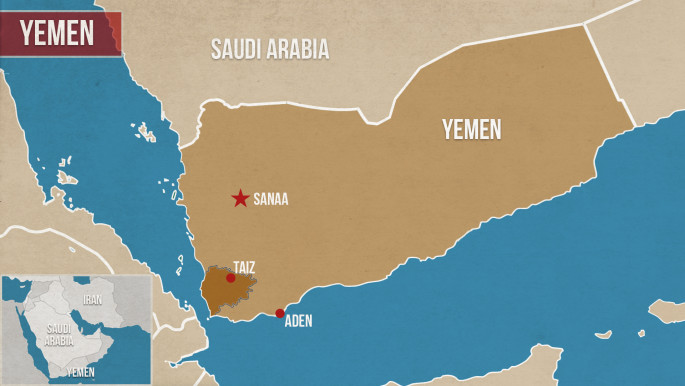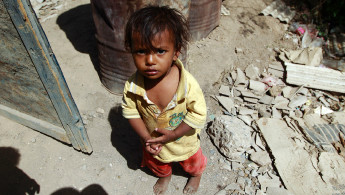Yemen on 'verge of famine' as negotiations near collapse
Millions of Yemenis are at risk of severe food shortages, and the war-torn country is "one step" from famine, the United Nations has warned.
John Ging, director of the UN's humanitarian operations, has just returned from Yemen and told media about the bleak situation in the country as a devastating war continues.
He said that there had been "a shocking fall off" in support from the donor community over the last few months for the the many in dire need of basic supplies and health care, and that 7.6 million Yemenis now face severe food shorages.
Lack of support
A UN appeal for $1.8 billion to help more than 13 million Yemenis this year is just 16 percent funded, he said. This is despite Yemen being declared one of the UN's highest-level humanitarian emergencies.
Ging urged governments not to forget Yemen and that the United States, United Kingdom, European Commission and Japan had contributed to the 2016 appeal.
Absent from making a contribution was Saudi Arabia, which donated $245 million to last year's UN appeal. He said the donor base for Yemen must be expanded, saying Saudi Arabia and the Gulf states were being contacted. He also stressed that contributions from parties to a conflict can't have strings attached.
 |
Ten million Yemenis need basic health care and over 7.6 million 'are severely food insecure' |  |
Saudi Arabia has led a Gulf and Arab military coalition in Yemen, which has launched devastating bombing on rebel territories, and is part of a military offensive on the ground with pro-government forces.
 |
Next step
Yemen has been at war since September 2014, when Houthi rebels and their allies overran the capital forcing the internationally-recognised government to flee south.
Their advances in the Arab world's poorest country brought the Saudi-led coalition into the war in March 2015. More than 6,000 people have been killed, including 930 children, Ging said.
Fighting looks set to continue. Yemen's Foreign Minister Abdul-Malik al-Mekhlafi announced on Tuesday the suspension of peace talks held in Kuwait after weeks of no progress. He said the rebels refused to accept the legitimacy of the country's internationally-recognised president Abd Rabbo Mansour Hadi.
Ging said over 10 million Yemenis need basic health care and over 7.6 million "are severely food insecure" - which "on the international index of food insecurity is one step below the level of famine".
"So it's a very fragile situation, and it's a huge number of people that are in that status," he said.
He said that between January to April this year, over 56,000 children were found to be suffering from severe acute malnutrition.
This brings the total number of children suffering from severe acute malnutrition to almost 180,000, and UN teams have only been able to reach 32 percent of them.
Ging visited the city of Amran and viewed the devastating impact and "terrible consequences" of air raids, including on a cement factory where 1,500 people lost their jobs. Flooding has also caused many homes to collapse.
More than 300,000 people have been displaced into the impoverished Amran governorate, compounding the humanitarian problems.
 |
|
Agencies contributed to this story





 Follow the Middle East's top stories in English at The New Arab on Google News
Follow the Middle East's top stories in English at The New Arab on Google News
![The UAE is widely suspected of arming the RSF militia [Getty]](/sites/default/files/styles/image_330x185/public/2024-11/GettyImages-472529908.jpg?h=69f2b9d0&itok=Yauw3YTG)
![Netanyahu furiously denounced the ICC [Getty]](/sites/default/files/styles/image_330x185/public/2024-11/GettyImages-2169352575.jpg?h=199d8c1f&itok=-vRiruf5)
![Both Hamas and the Palestinian Authority welcomed the ICC arrest warrants [Getty]](/sites/default/files/styles/image_330x185/public/2024-11/GettyImages-2178351173.jpg?h=199d8c1f&itok=TV858iVg)